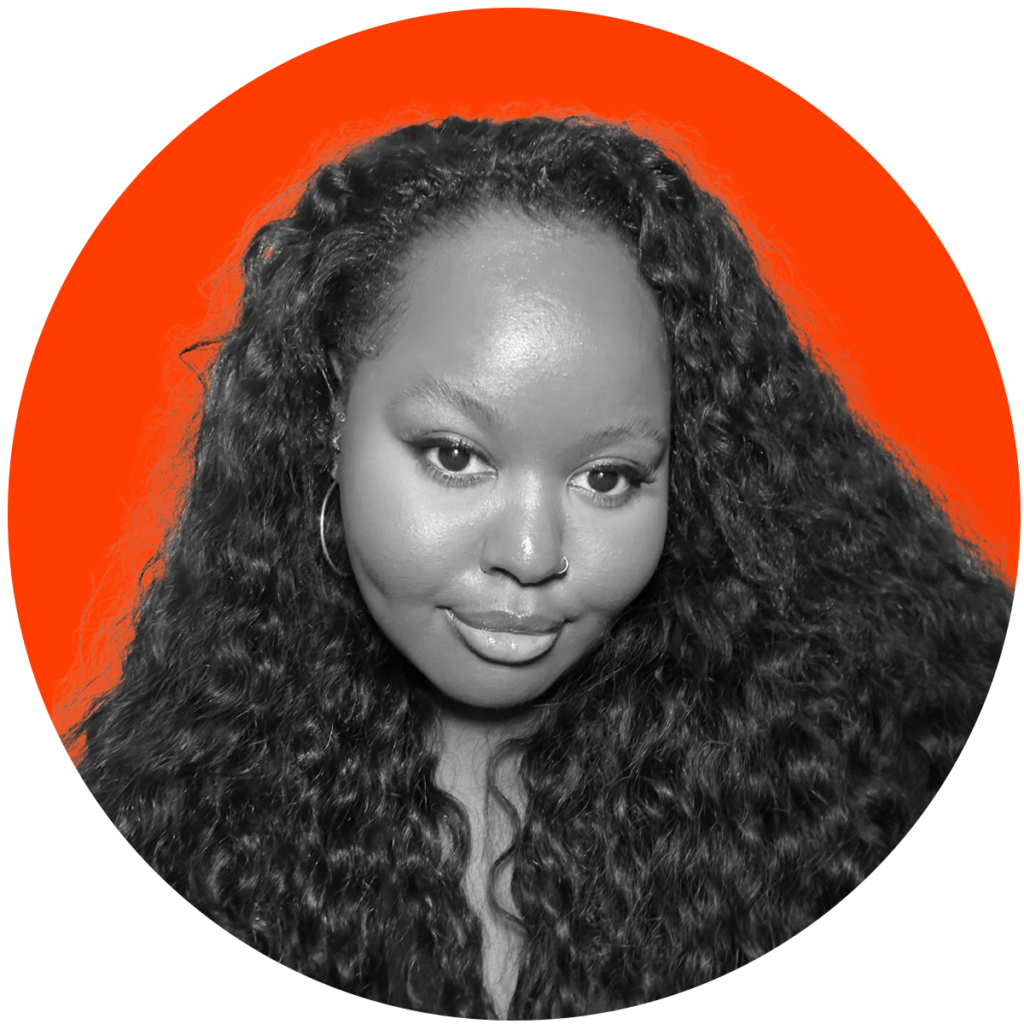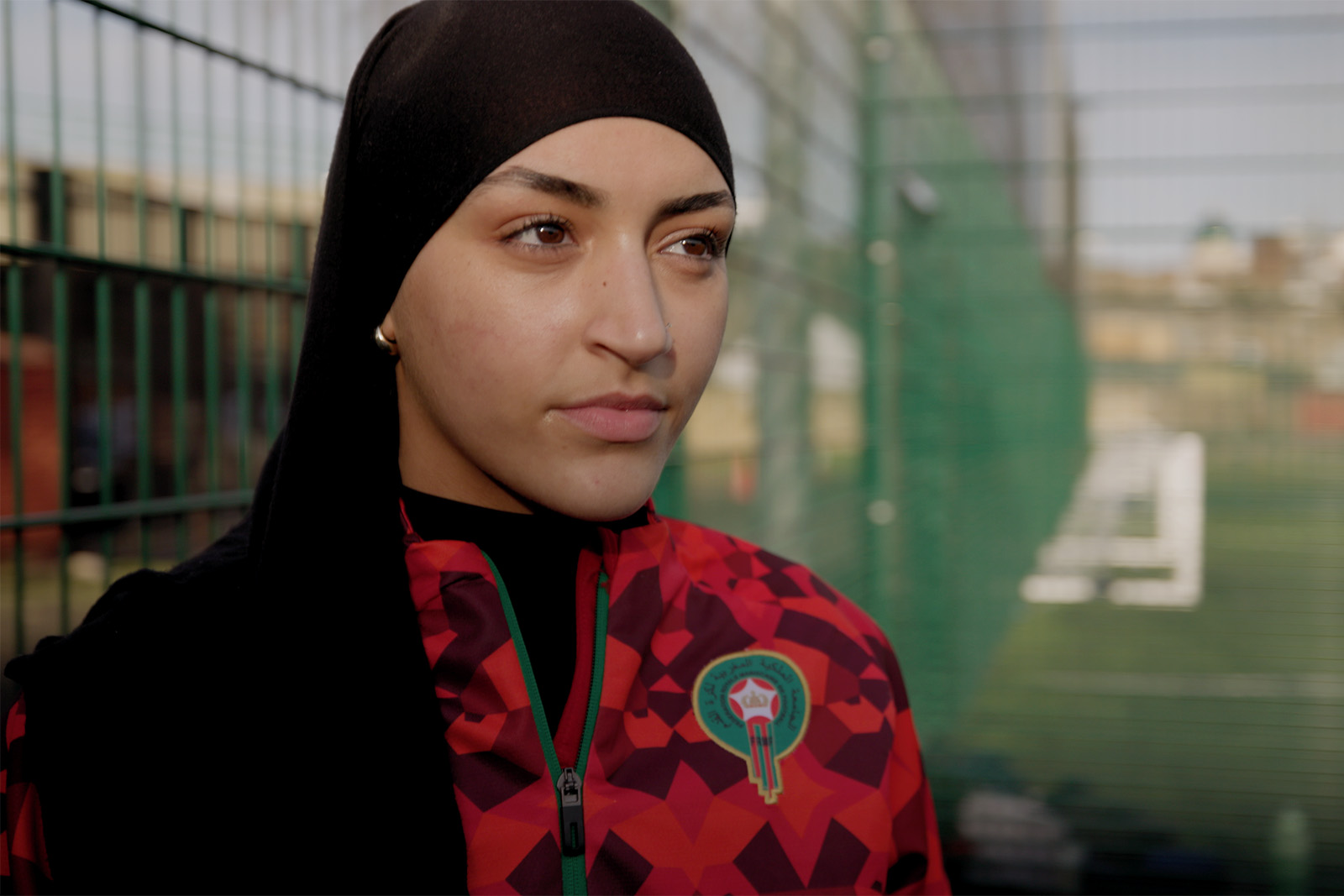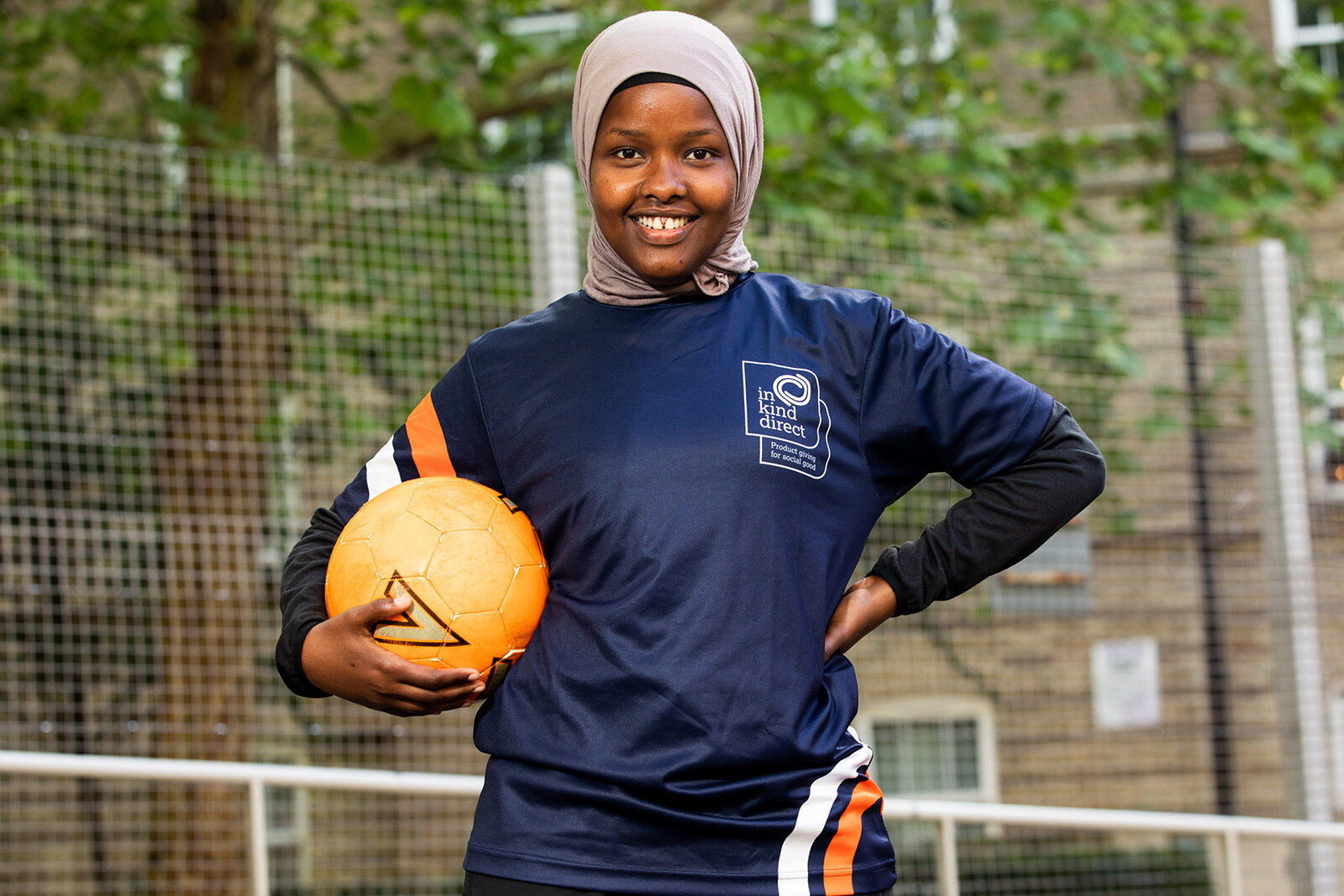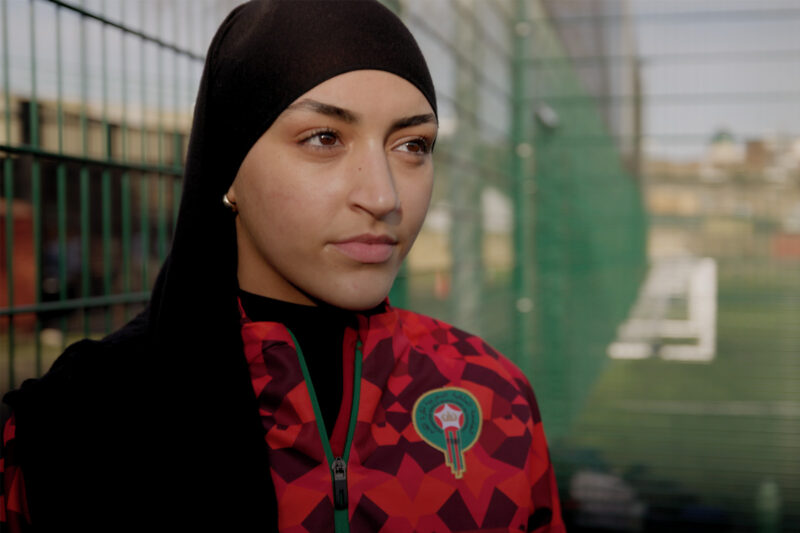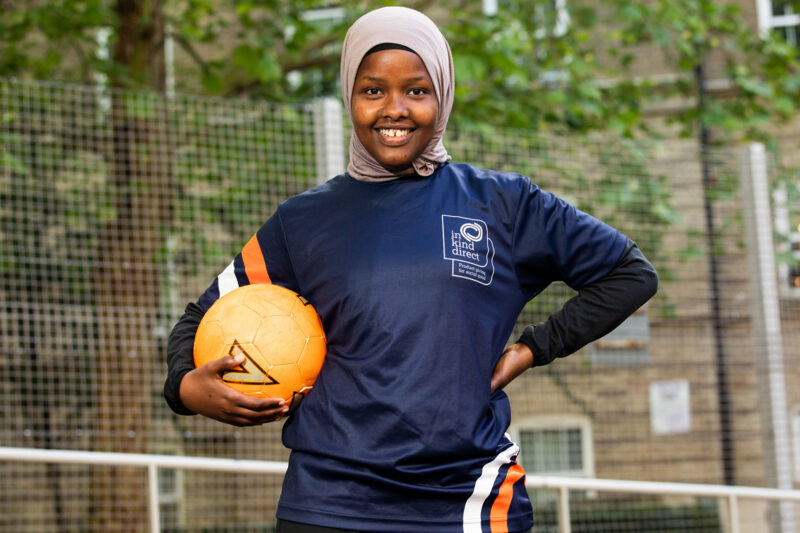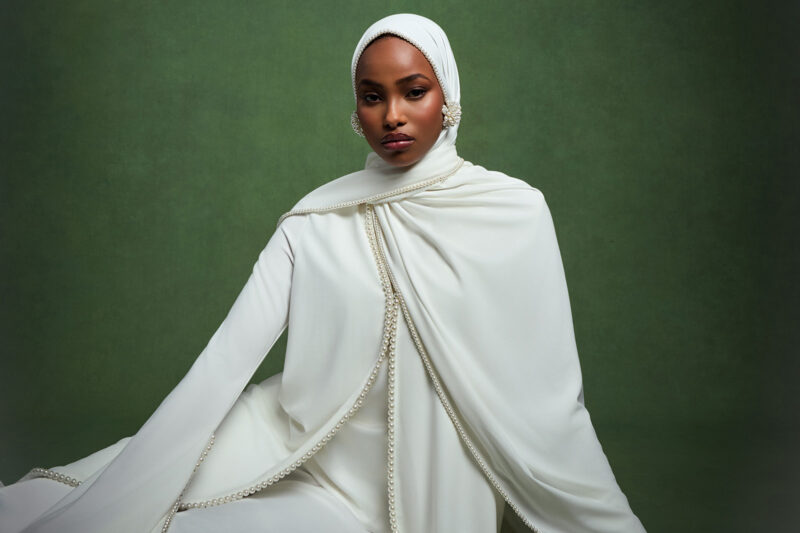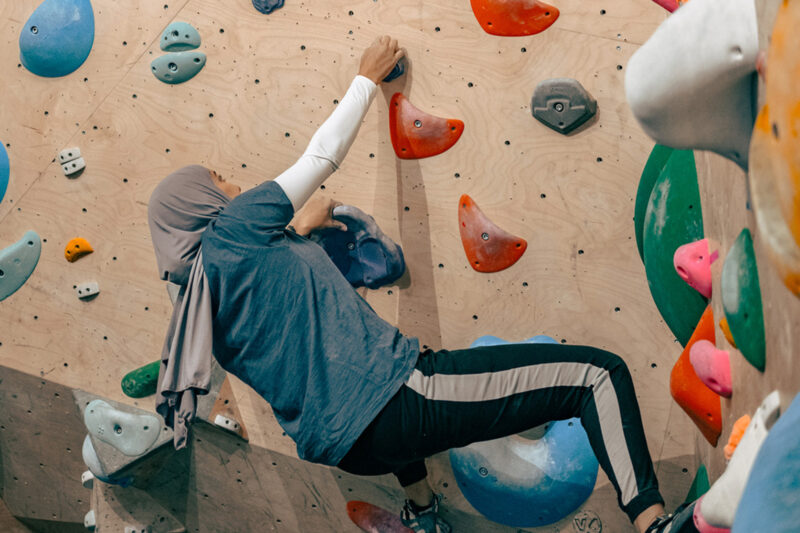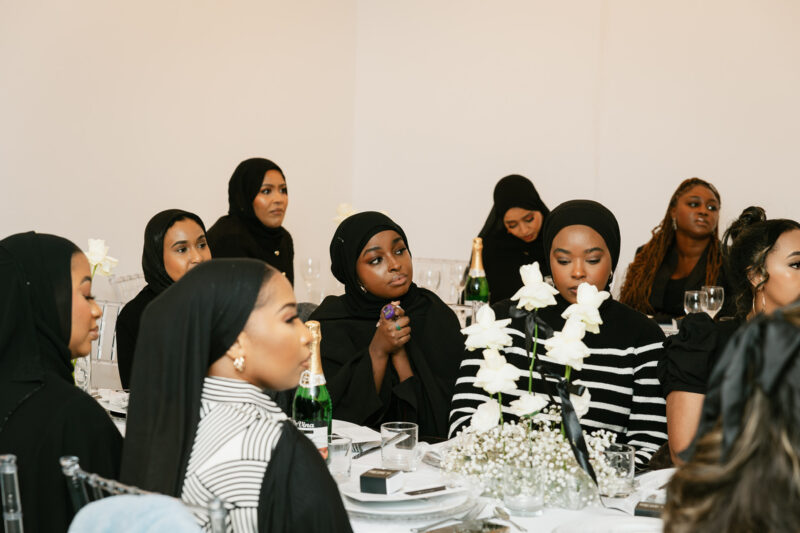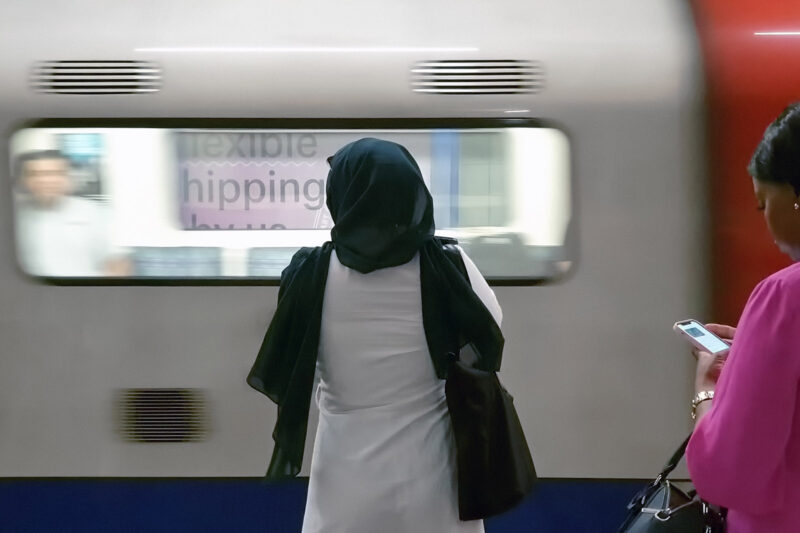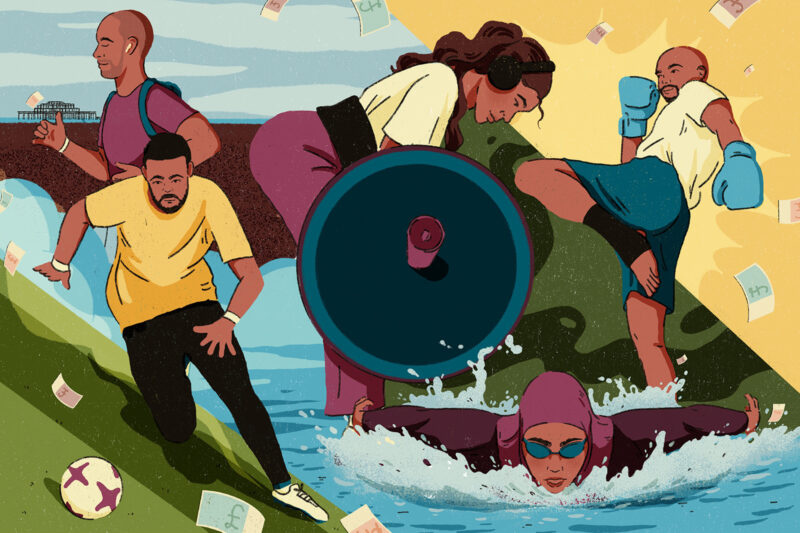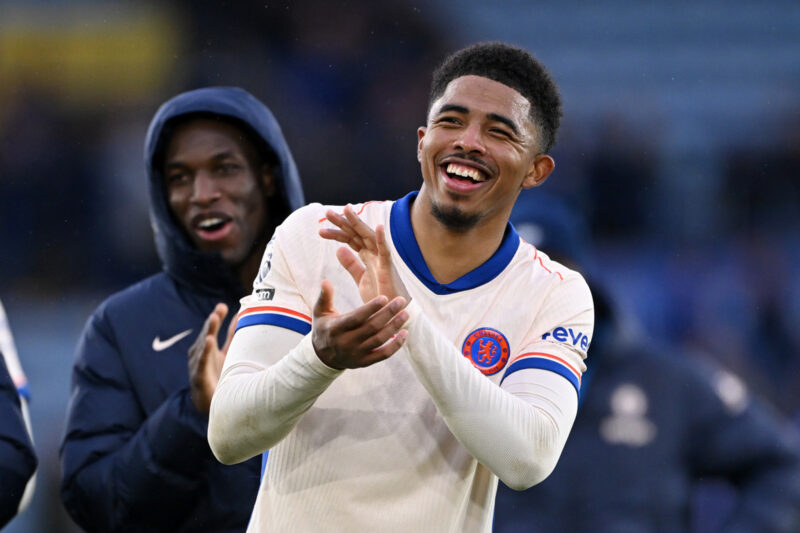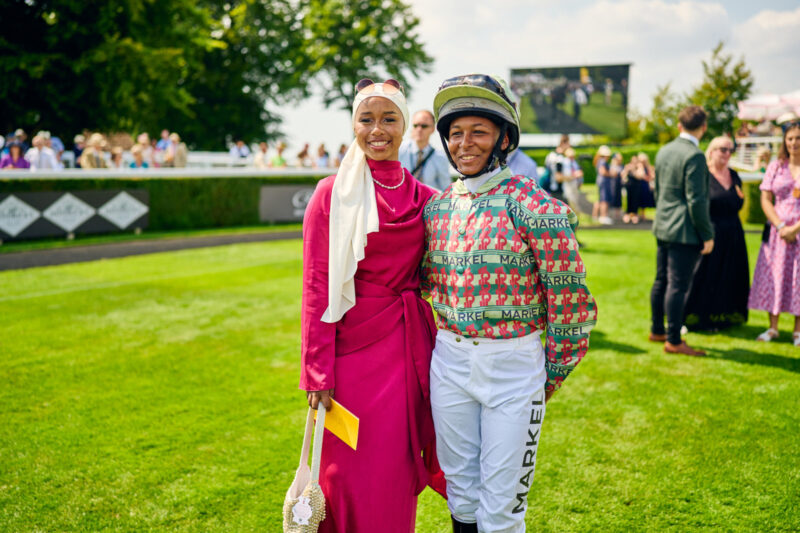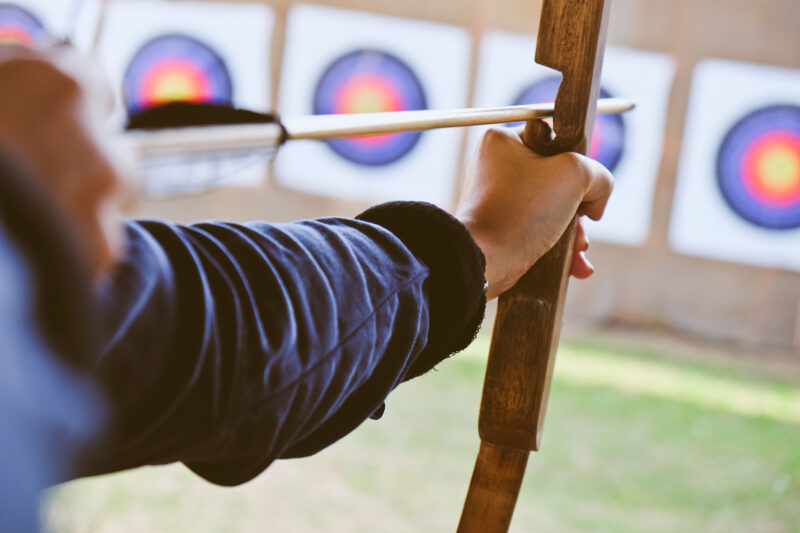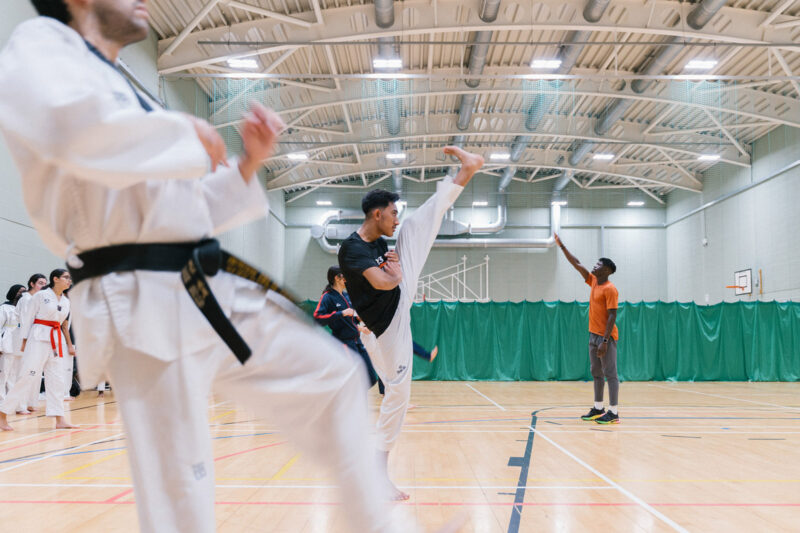Mainstream football left Muslim women behind. Grassroots teams are leading them back in
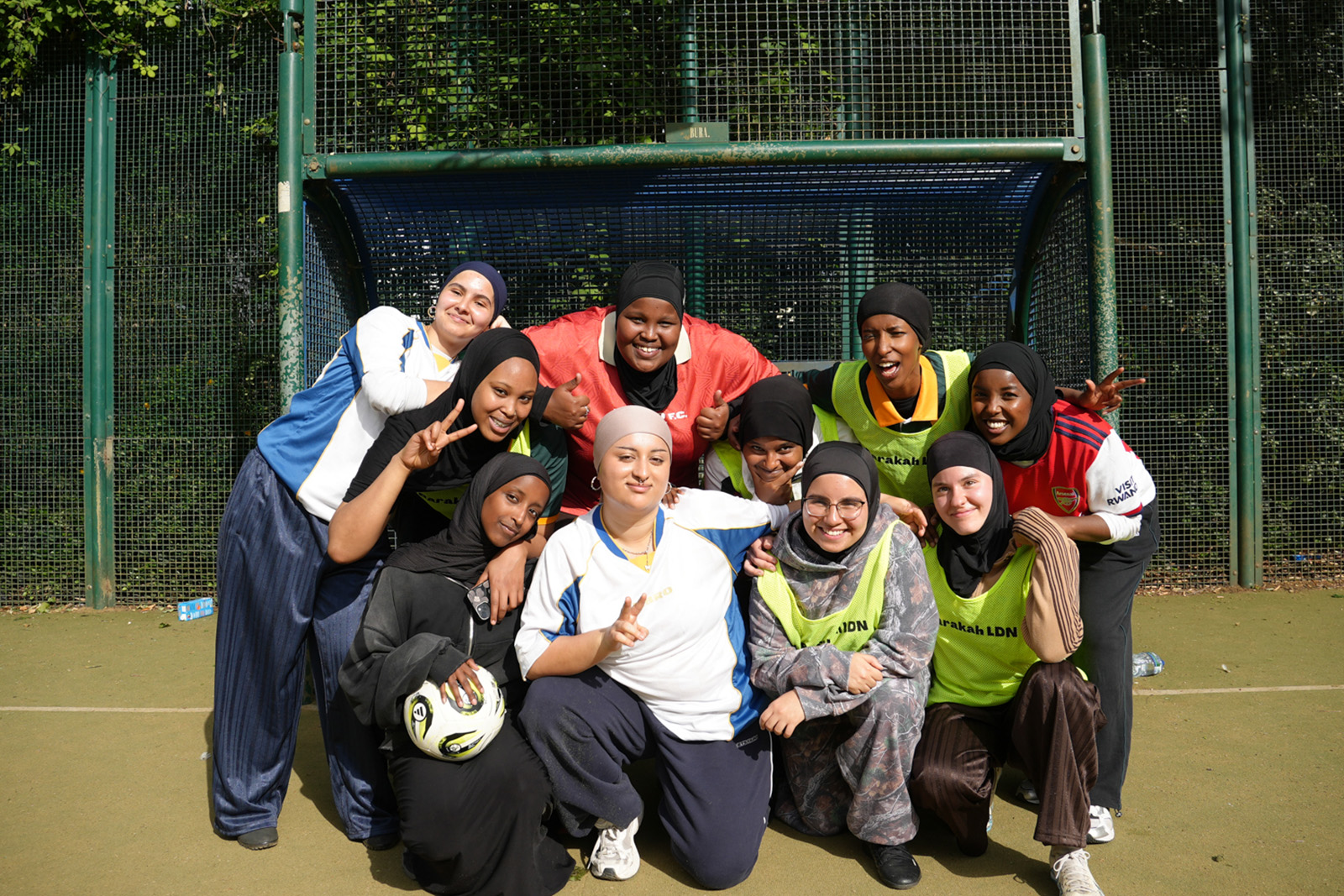
Hosting training sessions and building thriving communities, local groups open up the sport to everyone
Sisters Sagal and Siham Abdullahi have fond memories of playing football in the small garden of their council estate in Chelsea, the west London neighbourhood where social housing overlooks multimillion-pound townhouses.
“We didn’t have all the fancy channels growing up, so there wasn’t a lot to watch on TV,” Sagal tells me. “I’m one of six, so me and my siblings were constantly outside.
“It was a tiny space but to us, it felt massive,” she says of the garden she used to play in. “Football was a space for us to enjoy ourselves. For young Muslim girls, confidence isn’t always encouraged. Sometimes it can be labelled as arrogance. Growing up, I felt like I was only allowed to be that arrogant, cheeky kid on the pitch,” she recalls.
But as the sisters grew older, football slowly slipped further out of reach. In secondary school and college, there were no girls’ teams. Kits clashed with religious dress codes. Cultural and structural barriers — some subtle and some overt — piled up. By the time Sagal was at university in 2019, the sport had become just a memory.
That experience isn’t unique. Despite increased popularity in women’s football since the Lionesses’ win at the 2022 Euros — with 68,000 more girls playing in England, according to Sport England — participation among Muslim and minority women and girls remains limited. Systemic barriers, from the lack of inclusive spaces to limited cultural sensitivity around dress and faith, continue to block equal access to the game.
“Football went from being a main feature in our lives — something that we did literally every moment outside — to something that we couldn’t really play any more,” Sagal says.
Now, under a warm afternoon sun, the Abdullahi sisters are back on the pitch, trainers skimming across sunlit grass during a casual kickabout. Born out of a love for the game and frustration that so few spaces existed where women like them could feel truly welcome, the community organisation Barakah LDN holds casual weekly sessions with an average attendance of 20-25 people, where women — many of them Muslim — can simply enjoy playing.
The group does not play competitive games, choosing instead to prioritise fun, fitness and connection. Beyond football, Barakah hosts picnics, camping trips and viewings of major matches, building a wider community of around 350 women and girls.
Back in the summer of 2019 the sisters booked a pitch and invited a few friends and family to play. By 2021, the group had secured backing from organisations funding local initiatives to rent a regular ground in the borough and buy equipment. A year later, they received additional funding from the Young Hammersmith and Fulham Foundation.Their organisation has been running on grants ever since.
“We’re community-first and that’s how we orient ourselves,” says Sagal. “It’s just me and my sister. We’ve faced so much bureaucracy and so many doubts, but I’m proud of how many lives we’ve been able to reach.”
A few years earlier, Yasmin Abdullahi — the Somali-British founder of the Muslim women’s football organisation Sisterhood FC, now based in Rotherhithe, south east London — was facing a similar challenge. As a student at Goldsmiths, University of London, she was the only hijab-wearing player on the women’s team. “I didn’t get to know anyone who was Muslim or from my background, or people that I could really relate to,” she says.
Yasmin has heard many stories from other Muslim women who used to play at school, in parks and family gardens but, somewhere along the way, had stopped.
“It was really sad to hear,” she says. “Football means so much to me. Growing up, I never really had other girls to play with. I tried to go and sign up for clubs around the area and it was never really a great experience. I felt odd, like I never really gelled with the team or the coach. I went to a couple of teams in the area and I felt very alienated — I was the only Muslim person there.”
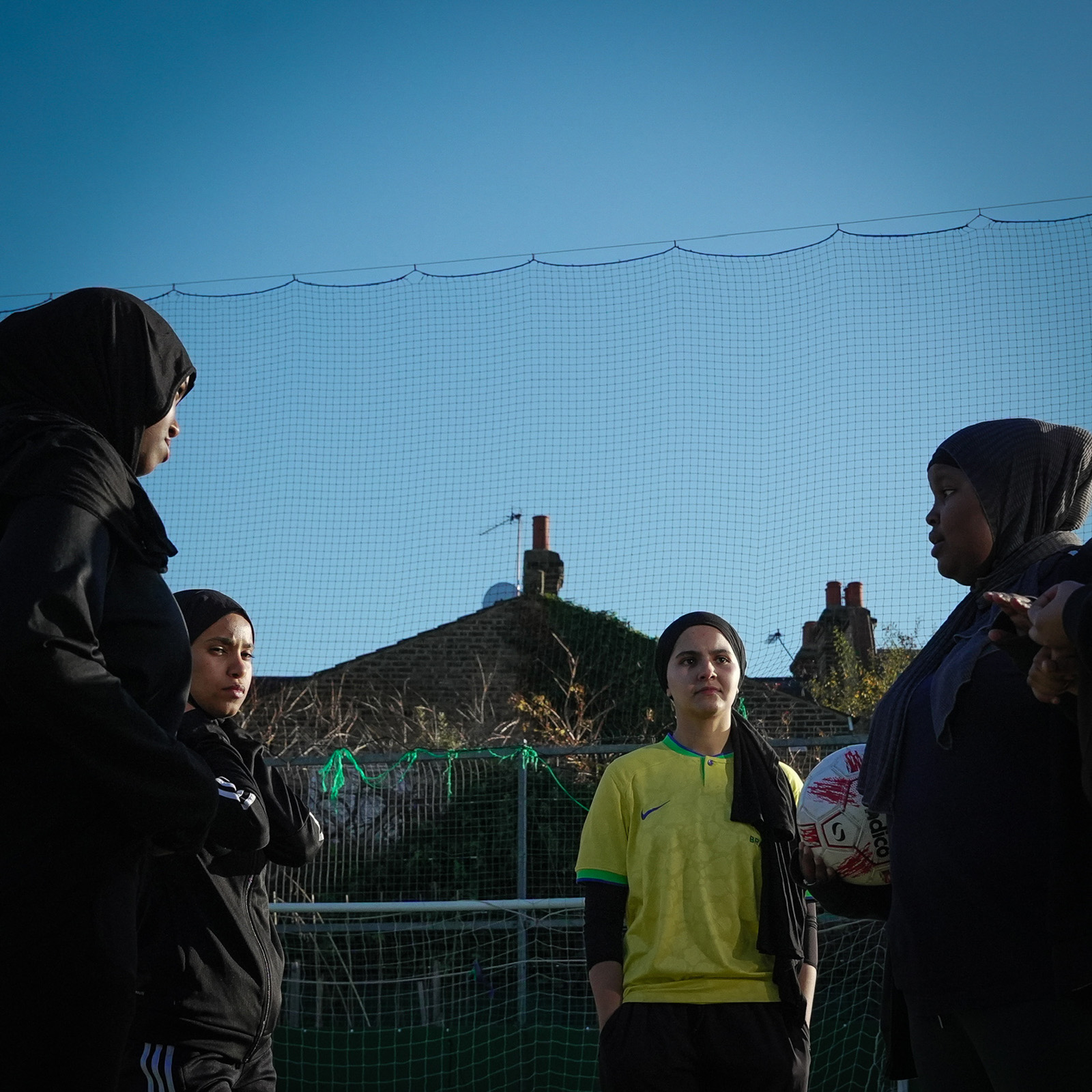
Sisterhood FC grew from three or four girls getting together on the Goldsmiths pitch every week. “That’s where it was born,” says Yasmin.
What followed, Yasmin says, was a “hustle”. She tapped into every university connection she had, from teammates to members of the student union. A former teammate helped her secure a regular pitch at her old secondary school in Deptford, south-east London.
Word spread and people who came along one week brought friends the next. Yasmin designed posters and posted pictures of their training sessions on Instagram. “Then Adidas saw it and they reached out to us,” she says. She credits the brand’s Breaking Barriers campaign — shot by award-winning photographer Alice Mann — with catapulting Sisterhood FC on to the national stage for grassroots football. The initiative was part of Adidas’s wider pledge to promote equality in sport.
Now the group holds weekly kickabout sessions focused on exercise and building skills, with around 10 or more attendees on average. The Sisterhood FC community is supported by a WhatsApp group of more than 200 women between the ages of 18 and 30.
Sagal says that creating safe spaces has been essential in getting more Muslim women to participate in the sport. “For us, safe space means safe from the male gaze — or any unwanted gaze,” she says. “It also means psychological and physical safety. Feeling like you are comforted and like that space is for you.”
While volunteer-led, grassroots groups such as Barakah LDN and Sisterhood FC are carving out such spaces, their very existence is a reminder of who mainstream football still leaves behind.
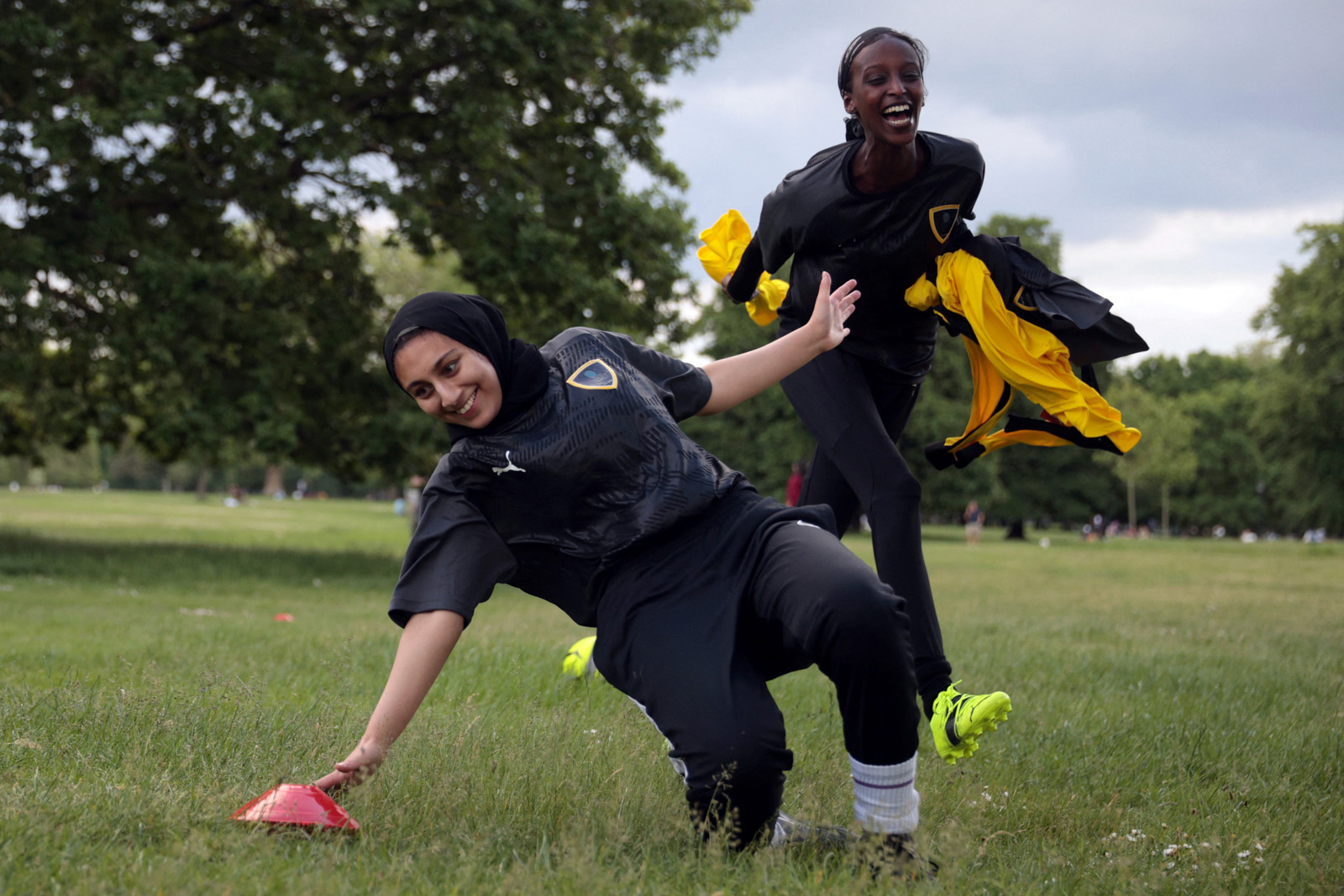
A 2023 report by the non-profit Muslimah Sports Association found that 80% of Muslim women participate in sports only casually, with just 9% at a competitive level. Less than half of the women surveyed found that current sports facilities are not appropriate for them because of a lack of women-only spaces, modest attire options and fear of discrimination. One third said that past negative experiences have stopped them from participating in sport.
Despite Fifa lifting its ban on hijabs and head coverings in 2014, local-level resistance continues. In 2024, former Somalia captain Iqra Ismail was temporarily barred from playing in the Greater London Women’s League (GLWL) for refusing to wear shorts. Her case prompted an apology from the Football Association (FA) and the GLWL, who later confirmed that Muslim women could wear tracksuit bottoms.
Yasmin partly attributes such barriers to a lack of representation. “You don’t really see anybody that looks like us in that space,” she says. “During the Women’s World Cup, there was the first ever hijabi to ever play in the tournament. There’s never been a Lioness who is Muslim, who wears a hijab, that represents us.”
Sagal agrees: “For a lot of girls, seeing people who look like them can be so powerful and so affirming. When you internalise that feeling of ‘I don’t have a place in football,’ you can also lose a lot of confidence playing.
“It’s a very confidence-heavy sport. At Barakah, when someone is taking a shot — whether it goes in or not — they’ll hear, ‘Well done’, ‘Great attempt’, ‘Mashallah’. We’re very affirmational on the pitch.”
In 2024, the FA unveiled a four-year strategy to double efforts to make football more inclusive. In a written statement, the FA said it was committed to using its influence to “make everyone involved in whatever capacity, feel welcome in the game”.
A spokesperson said: “We recognise the unique barriers that can affect some Muslim women and girls when playing football, and we’re working collaboratively with our partners across the game to remove them — through targeted coaching opportunities, grassroots engagement and education.”
In 2021, the Lionesses visited the Muslimah Sports Association as part of a Nike and FA collaboration to distribute more than 1,200 sports hijabs nationwide. And in May, the FA and the Muslim Sports Foundation delivered a national coach development conference for Muslim women interested in leading football activities in their local communities.
“We’re taking proactive and practical steps to open up access and create welcoming spaces for Muslim women and girls at every level of the game,” the spokesperson added.
Barakah LDN and Sisterhood FC have also made it a priority to keep their sessions free from the very beginning.
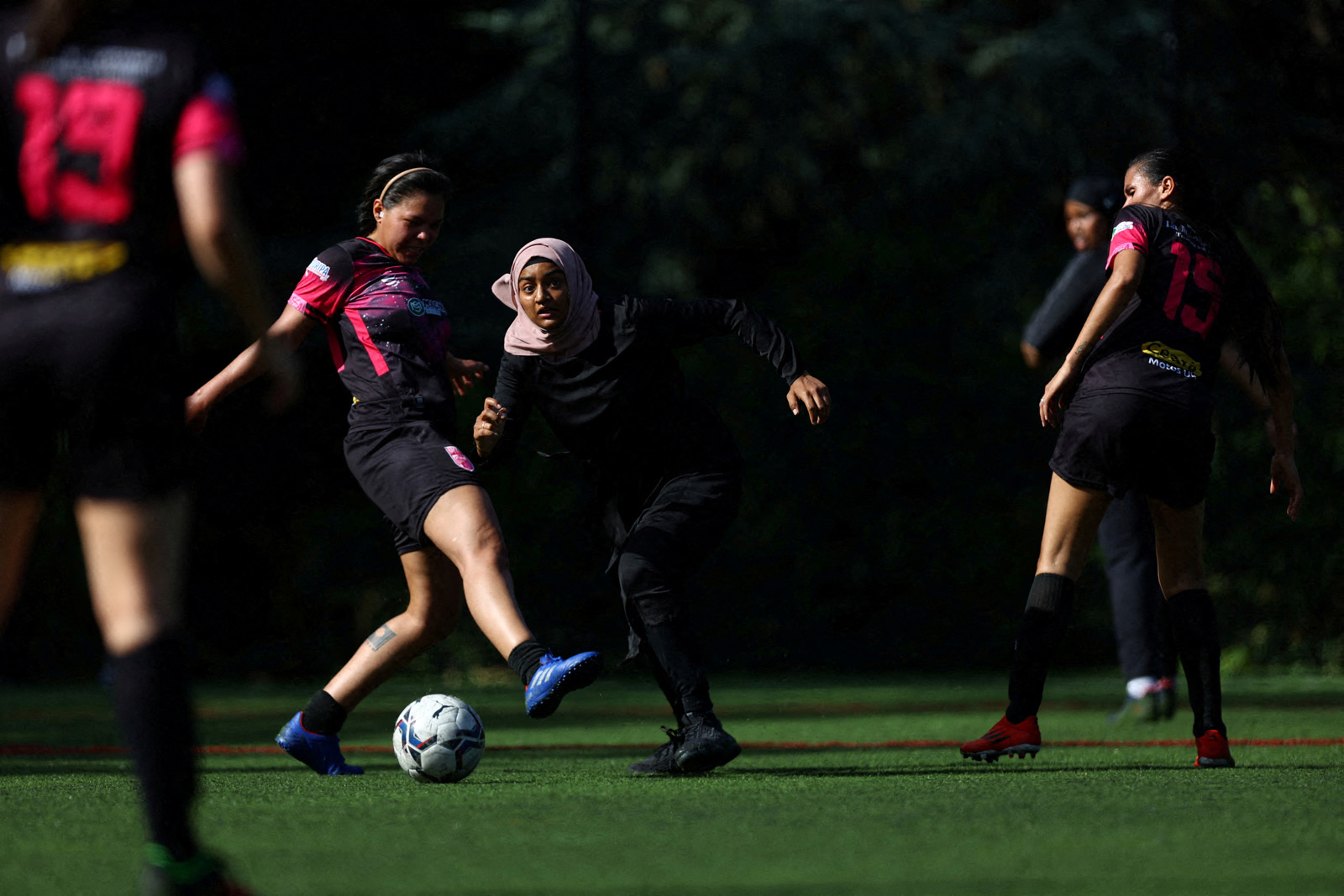
“Free access to sports is something that the government should be providing. This is not a privilege, it’s a right that everybody should have, especially women and historically excluded communities, or people who have specific needs,” says Sagal.
Sagal draws on her own experience growing up working-class in London. “There are already enough barriers to accessing sports and living a healthy lifestyle,” she says. “Gyms are expensive. Transport is expensive. Even when I was trying to get back into football during uni, I didn’t have money to cover the cost of transport and, on top of it, cover the cost of paying for a session — I think it was £10, sometimes more.”
Ahead of the Women’s Euros 2025, held in Switzerland from 2 to 27 July, Yasmin tells me she wants young girls watching “to feel like they belong”. Sagal echoes that sentiment, especially after seeing the positive impact of Barakah’s sessions.
“One of the girls that came to our session was in secondary school and really quiet at the start,” Sagal says. “Slowly, we saw her gain confidence and start to be a bit cheeky on the pitch. It was lovely to see.”
 Newsletter
Newsletter

